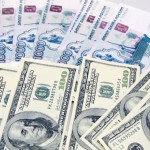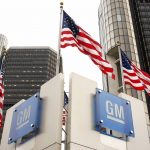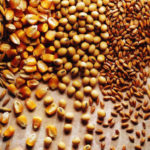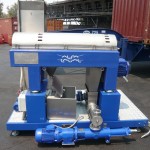Reckitt Benckisers shares jumped by more than 2% on Monday after the company announced it will spin off its pharmaceutical arm within the next 12 months as generic substitutes of its main revenue driver – the heroin substitute Suboxone – began to erode sales and margins.
Reckitt Benckisers plans to divest its pharmaceutical business come as a logical aftereffect of its deteriorating performance. RB Pharmaceuticals, valued at between $1 and $4 billion, has been posting negative growth for the past four quarters. Revenue fell by 5% in the three months through June 30th, while the same category posted a 12% decline during the second quarter last year. During the first half of the financial year, revenues dropped by 8% to 344 million pounds.
Chief Executive Officer Rakesh Kapoor said in a statement: “We believe that RB Pharmaceuticals has the potential to deliver significant long-term value creation as a stand-alone business. We have therefore decided to pursue a demerger of RB Pharmaceuticals with a separate U.K. listing.”
The company announced that it will list its unit as a separate entity on the London Stock Exchange within a year and will decide later whether it will sell the entire division or keep a minority stake.
The pharmaceutical arm derives almost all of its $1.3 billion annual revenues from its heroin substitute Suboxone. The drug lost its patent protection in 2009 and has ever since been subjected to market pressure from generic competitors, eroding sales and margins, especially in its core U.S. market. The US Food and Drug Administration approved two generic alternatives to the drug in 2013. Reckitt discontinued the tablet version of Suboxone in March 2013.
Overall, RB Pharmaceuticals market share dropped by 1% to 63% in the second quarter, pressured down by competitors such as Orexo AB’s Zubsolv.
Andrew Wood, an analyst at Sanford C. Bernstein said in a note, cited by Bloomberg: “The biggest positive of the spin of RBP is that it will finally remove the cloud of uncertainty that has shrouded RB for years, and allow investors to focus on the attractive strategic shift towards health.”
News of the spinoff intentions come as Reckitt Benckiser reported a 4% jump in sales, excluding the pharmaceuticals business, while overall sales amounted to 2.29 million pounds, or $3.89 billion, posting a 7% decline from a year earlier, broadly in line with market expectations.
Performance at Reckitts health-care division was particularly strong, posting a 10% jump in sales in the second quarter, fueled primarily by Durex condoms and Scholl footcare. The unit, which accounted for 5% of Reckitts revenue back in 2005, now makes up more than a third of the groups operating profit.
Reckitt Benckiser Group PLC rose by 2.07% to 5 175 pence by 11:49 GMT in London, marking a one-year change of +11.87%. The company is valued at 36.64 billion pounds. According to the Financial Times, the 20 analysts offering 12-month price targets for Reckitt Benckiser Group Plc have a median target of 4 850 pence, with a high estimate of 6 125 pence and a low estimate of 4 100 pence. The median estimate represents a -4.34% decrease from the last price of GBX 5 070.





